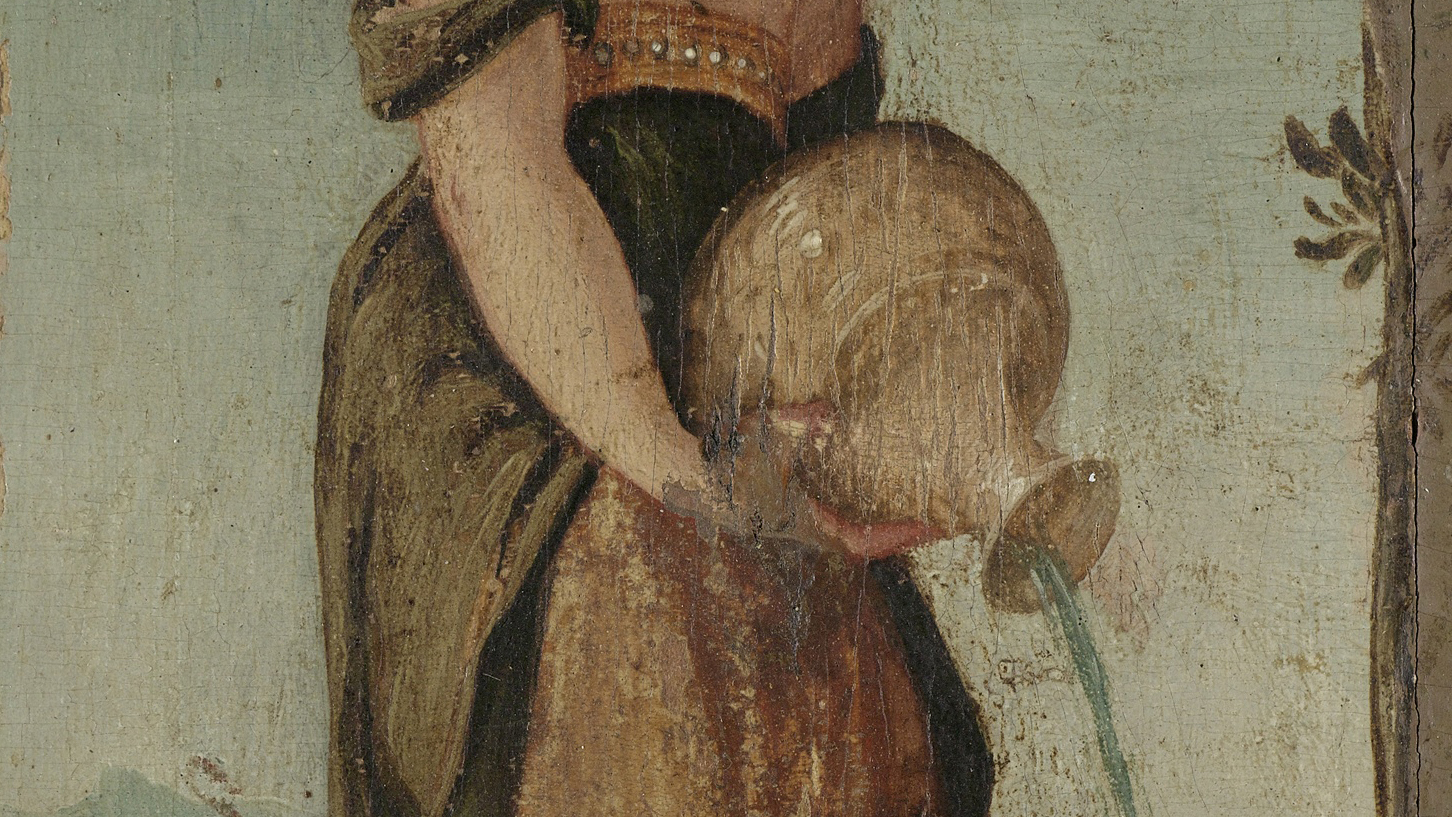A short fiction inspired by Luke 22:10.
She guided the tiny mouse out of its corner with a gentle nudge of her broom, laughing as she teased it this way and that, helping the frightened creature find its way out the door, down the steps, and into a street teeming with merchants hawking apples and herbs, with shoppers, and those hurrying to the temple.
She didn’t mind mice very much—but not in this room, and not today. No space being made ready for Passover and the seder meal could be permitted faithless intruders, even helpless little grey ones with adorable pink noses.
Moving on to gather dust and cobwebs from the corners, she began, all unconsciously, to hum under her breath a joyful little melody learned from her mother, who would quietly sing it over and over in rhythm with her movements as she would grind flour: “O praise him, all ye nations: praise him, all ye people . . .” The tension in her mother’s hands as she milled grain down into ever-finer powder were a stark contrast to the serenity of her face as she breathed her song again and again into the air, her body rocking almost imperceptibly with her breath, her wrists continually churning. Amid all of this motion her mother had yet seemed a still and peaceful pond, unruffled by whatever was happening around her, be it a storm of expressed frustration from one side of her, or a gentle breeze of easy gossip on the other.
She spotted a crowd bearing palms and shouting what sounded like “Son of David” and “Hosia na, hosia na . . . please, save . . .”
In those moments, she would watch her mother and wonder whether this was what it meant to be all of a piece—when everything is one, and when hand, heart, and habit reveal a body, mind, and spirit in full integration, centered and whole. The older woman, entranced in her work and prayer, could not know how deeply fascinated her daughter was at the notion that her mother, in those moments, was an image of fulfillment—as though everything within her had been completed, like she was now a space, an open field or chamber, fully prepared. Ready for whatever would come next. O praise him . . .
She knew that even now, with her own hands busy, her own voice lightly crooning the familiar phrases, her own body swaying as she swept, she was no model of quiescent wholeness—quite the opposite! She was forever distracted—always poking her head out a window or eavesdropping on a conversation in order to keep up with the news, the word on the streets, the happenings. Hers was a restless mind, rarely fully engaged—even when at prayer—because there was always something to notice, somewhere. Only the other day she had left a water jar unguarded at the well, running off to discover the source of excited chatter and shouts in the distance. She’d followed the noise until she spotted a crowd bearing palms and shouting what sounded like “Son of David” and “Hosia na, hosia na . . . please, save . . .”

She had been rebuked for the loss of the jar. Mocked by her brother, who called her lazy, and her sisters who called her spoiled, her mother had served her a look that left her feeling scalded inside and out. She had apologized with shame. “And what was so interesting to you, anyway?” her brother had demanded. “Was there a prophet? Who is he?”
“I don’t know,” she confessed as she looked at the floor, blushing. “All I could see were the people and the palms.”
“What a terrible spy you are,” he laughed. “Your family could die of thirst and not even know why, all because you are so meddlesome!”
“Not meddlesome—curious,” her father had corrected with affection.
“Tcha, ‘curious.’ Nosy,” her mother had declared, and definitively. “She is a bee too busy to make honey.”
The memory of her father, chuckling as he shrugged, bathed her in a warmth that had nothing to do with the light beaming in through the windows and slowly moving about the room. She rededicated herself to the chore before her in his honor, grateful now that he had today taken her by the shoulders and turned away from the lively noise belowstairs, guiding her toward this room where, for once, she was happy to be in the silence, alone with her thoughts and in control of her environment as she fluffed cushions and folded clean linens and conquered the impressive geography of droppings left by her recently-evicted tenant.

She used the last of the water to wipe the dust at the windows and the door, and looked around with her lips pursed and her eyes narrowed. Nearly finished; the room hadn’t been so very disheveled to begin with. It had not yet been claimed by anyone for the holy day, but her father was sure it would be. “There are always late-comers, people pulling their lives together at the last possible minute. It is best to have all in readiness for them, when they come.”
Well, it was ready now. Open, and prepared for whatever would happen next.
Oh! But she still needed to visit the well and refill the pitchers and basins.
With an adolescent’s sense of mischief, she wondered whether—as the room was now well-settled—she might be able to work her genial father’s fondness to her benefit. Perhaps if she reminded him of her most woeful record on water-bearing, he might accompany her to the well, carrying back the heavy jar.
She nodded to herself with a smile and skipped lightly, down the stairs, calling out to him.
This piece was originally published on April 18, 2019 on WordOnFire.org.
